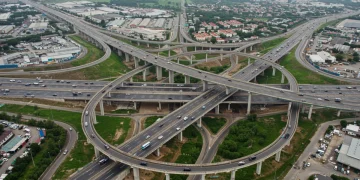Benefits reform for migrant laborers: what you need to know
Benefits reform for migrant laborers aims to improve their working conditions, rights, and access to healthcare while ensuring fair wages and enhancing community integration.
Benefits reform for migrant laborers is a crucial topic that affects millions. Have you ever wondered how these changes could transform their lives? Let’s dive in!
Understanding the current status of migrant laborers
Currently, the status of migrant laborers is a pressing issue that affects many countries around the world. These workers often face numerous challenges, yet their contributions are invaluable to various industries.
Key Challenges Faced by Migrant Laborers
Migrant laborers regularly confront obstacles that impact their daily lives. Issues such as exploitation, lack of access to healthcare, and limited rights often plague them. Understanding these challenges is crucial to implementing effective reforms.
- Low wages: Many laborers receive inadequate compensation for their hard work.
- Difficult working conditions: Unsafe environments can lead to health risks.
- Legal barriers: Complex immigration laws often hinder laborers from receiving support.
- Cultural isolation: Migrant workers may feel disconnected from local communities.
This situation highlights the need for awareness and advocacy. By improving the conditions for migrant laborers, we can foster better workplaces and communities.
Moreover, the necessity for understanding migrant laborers increases. Their rights must be respected, and policies should be enacted that safeguard their welfare. Continuous discussions can pave the way for more inclusive practices and protections.
Recent Developments
Recently, there has been a push for legislation to address these issues. Advocates and organizations are striving to amplify the voices of migrant workers. Many impactful initiatives focus on providing resources and support, aiming for substantial reform.
Overall, adjustments at both local and international levels are essential. Ensuring the dignity and fair treatment of migrant laborers is a shared responsibility that can lead to better lives for many families.
The importance of benefits reform
The importance of benefits reform cannot be overstated, especially for those who are vulnerable in the workforce. When we talk about reforms, we are discussing changes that will directly improve the lives of many workers.
Why Benefits Matter
Benefits play a critical role in ensuring that workers are protected. These include health insurance, fair wages, and job security. Without proper benefits, laborers often face financial instability and poor health.
- Health coverage: Access to healthcare is essential for maintaining well-being.
- Job security: Stable employment allows families to thrive.
- Financial support: Benefits help workers manage unexpected expenses.
Furthermore, benefits reform can lead to a more motivated workforce. When laborers feel valued and supported, their productivity and morale improve. This, in turn, can lead to better outcomes for businesses and the economy as a whole.
Proponents of reform highlight that fair benefits lead to reduced turnover. When workers stay longer in their positions, companies save money on recruitment and training costs. It’s a win-win situation for both employees and employers.
Impact on Communities
The ripple effects of benefits reform extend far beyond individual workers. When migrant laborers receive fair benefits, their families and communities also benefit. Children are more likely to attend school, and healthcare access can improve public health outcomes.
Additionally, stronger communities foster a better sense of belonging and unity. As reforms take shape, we may see an increase in social cohesion, as migrant laborers feel more integrated into their communities.
Key challenges faced by migrant laborers

Migrant laborers often encounter many challenges that impact their daily lives. Understanding these key obstacles is essential in advocating for their rights and implementing effective reforms.
Common Challenges
One major hurdle is exploitation. Many migrant workers face unfair treatment, including long hours without proper pay. This exploitation makes it difficult for them to support their families back home.
- Language barriers: Communication difficulties can lead to misunderstandings with employers.
- Limited access to healthcare: Many workers do not receive necessary medical care, impacting their overall health.
- Legal vulnerabilities: Fear of deportation can prevent workers from reporting abuse.
Furthermore, migrant laborers often endure harsh working conditions. From unsafe environments to inadequate breaks, these factors can severely affect their physical and mental well-being. This lack of attention to worker safety often results in accidents and injuries.
Another significant issue is social isolation. Many laborers live far from their families and communities, leading to loneliness and depression. This sense of isolation can make it difficult for them to seek help or support.
Impact of Challenges
The challenges faced by migrant workers do not only affect them individually; they ripple through families and communities. Their struggles can ultimately undermine their ability to contribute to the economy and society effectively.
Addressing these challenges requires collaboration between governments, organizations, and communities to create a more supportive environment for migrant laborers. Only by recognizing and addressing these key challenges can we move toward meaningful change.
Successful cases of benefits reform
Examining successful cases of benefits reform can provide valuable insights into effective practices and policies. These examples highlight the potential for meaningful change.
Examples of Effective Reforms
In various countries, reforms have successfully improved the lives of migrant laborers. These initiatives often address key issues such as healthcare access, fair wages, and employment rights.
- Case Study 1: In country X, the government implemented a program that provided free healthcare to all migrant workers. This initiative significantly reduced the number of untreated health conditions among this population.
- Case Study 2: Country Y introduced a policy ensuring that all migrant laborers receive fair wages. This led to improved living standards and higher morale among workers.
- Case Study 3: In country Z, legal protections were put in place to shield migrant workers from exploitation. These reforms allowed more workers to report abuse without fear of retaliation.
Such reforms not only benefit the laborers but also enhance the overall economy. Healthier workers tend to be more productive, while fair wages stabilize communities. Over time, these changes can lead to a more equitable society.
Moreover, successful reforms often rely on collaboration between governments, businesses, and advocacy groups. This teamwork helps create programs that meet the specific needs of migrant laborers, ensuring they have the support necessary to thrive.
Lessons Learned
From these cases, we can learn the importance of listening to workers’ concerns. Engaging laborers in the reform process ensures that their voices are heard and their needs are prioritized. When reforms are tailored to address real challenges, they are much more likely to succeed.
Future outlook for migrant labor policies
The future outlook for migrant labor policies is a critical topic that deserves attention. As global economies evolve, so do the needs and rights of migrant workers. Anticipating these changes can help shape fair policies that respect their rights.
Trends in Migration
As we look toward the future, several trends are shaping the landscape of migration. Factors such as climate change and economic shifts could lead to increased migration flows. Understanding these trends is essential for crafting effective policies.
- Climate-induced migration: As environmental conditions worsen, many workers may be forced to leave their homes in search of better opportunities.
- Technological advancements: Innovations may change the types of jobs available to migrant workers, requiring new skill sets.
- Global labor shortages: Certain industries may experience a lack of available workers, increasing demand for migrant labor.
Policies must adapt to these shifting dynamics, ensuring that the rights and well-being of migrant laborers are prioritized. Collaborative efforts between governments, NGOs, and businesses will play a vital role in developing solutions.
Enhanced Protections
Looking ahead, there is a growing emphasis on enhancing protections for migrant workers. This includes proposals to strengthen labor rights and provide better access to social support systems. As conversations about equality and justice gain momentum, policymakers have an opportunity to implement reforms that truly benefit laborers.
Moreover, investing in educational programs and skill development for migrant workers will foster their integration into local economies. By equipping them with necessary skills, these workers can contribute positively to their communities.
Opportunities for Advocacy
Advocacy groups have a crucial role in shaping the future of migrant labor policies. Their work helps amplify the voices of those affected by policies, ensuring that reforms are grounded in the experiences of migrant workers. As these organizations collaborate with policymakers, we may see more inclusive practices take hold.
FAQ – Frequently Asked Questions about Benefits Reform for Migrant Laborers
What are the main challenges faced by migrant workers?
Migrant workers often face challenges such as exploitation, language barriers, limited access to healthcare, and legal vulnerabilities.
How can benefits reform improve the lives of migrant laborers?
Benefits reform can provide improved healthcare, fair wages, and better working conditions, leading to enhanced quality of life for migrant workers.
What successful cases exist for benefits reform?
Countries like X and Y have implemented policies ensuring healthcare access and fair wages, significantly improving living conditions for migrant laborers.
What is the future outlook for migrant labor policies?
The future looks promising as advocacy groups push for inclusive policies that prioritize migrant rights, providing better protections and support.





